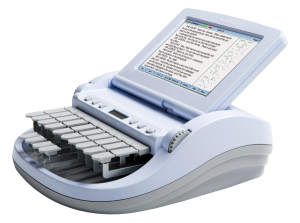 It’s often customary to spend eight, sometimes nine hours a day sitting while you’re at work. And by the time your workday comes to a close, you just want to go home and relax. So by default, you end up sitting again either in front of the TV or computer. Medical studies have found that spending seven or more hours sitting can lead to long-term health concerns. It has also been found that physical activity can stimulate the brain, improving memory and thinking skills. At O’Brien & Bails, we think everyone should make it a priority to get out of their chairs and move throughout the workday.
It’s often customary to spend eight, sometimes nine hours a day sitting while you’re at work. And by the time your workday comes to a close, you just want to go home and relax. So by default, you end up sitting again either in front of the TV or computer. Medical studies have found that spending seven or more hours sitting can lead to long-term health concerns. It has also been found that physical activity can stimulate the brain, improving memory and thinking skills. At O’Brien & Bails, we think everyone should make it a priority to get out of their chairs and move throughout the workday.
A unique way to incorporate low-impact physical activity into your workday is to hold meetings on the go. A number of employers are encouraging this (when it’s feasible). If you’re part of a small meeting that consists of three or four people, recommend a “walking meeting.” Not only is this creative, different and fun, but it gets you and your co-workers out of your chairs and away from your desks. Walking meetings are a great way to encourage camaraderie while getting some extra steps in and refreshing your brain for the rest of the day. Good blood flow leads to good ideas!
If getting away from your desk is nearly impossible, we all understand time crunches and managing multiple projects, same with tight deadlines, consider in investing in a standing desk. Standing desks have become a rising trend in office settings. It is a way to get you or your employees up on your feet without sacrificing productivity. Many are easily adjustable, so that you can alternate sitting and standing throughout the day. If standing while working is not an option or you are in a long deposition, you can get physical activity in while remaining seated. Simply lift your leg, straighten it out, hold for 5-10 seconds, and then lower it back down without letting your foot touch the floor. Do this simple exercise at least 15 times per leg, a few times per day.
When it comes to physical activity, it is easy to forget about your hands and your wrists. They are one of the most common workplace ailments – especially if you’re typing for 8+ hours like many of our court reporters. The best thing you can do for your hands and wrists is stretching them out regularly. This improves range of motion, and reduces the risk of carpal tunnel and can even protect you from breaks if you fall. An effective and easy stretching exercise is to make a gentle fist, wrapping your thumb across your fingers. Hold the fist for 30 – 60 seconds, and then release and spread your fingers. Repeat with both hands at least four times per day.
We understand that being active when you have a demanding desk job can be challenging. However, there are many ways to implement simple exercises into your daily work routine. Once you start the habit of being more active during your work day, your body and mind will thank you.
 Because court reporting is a highly specialized skill, it takes a special type of person to be a court reporter and do it well. The best court reporters possess certain qualities and skills that make them good at what they do.
Because court reporting is a highly specialized skill, it takes a special type of person to be a court reporter and do it well. The best court reporters possess certain qualities and skills that make them good at what they do. What Are Ethics?
What Are Ethics? In an article on About.com, the profession of Court Reporting is listed as one of
In an article on About.com, the profession of Court Reporting is listed as one of